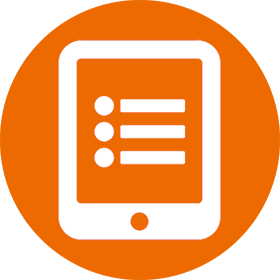Personal Loans
A helpful tool to use however you like
We’ll help you find the right personal loan, whatever your needs
A personal loan can help you borrow substantial sums, generally up to $100,000, regardless of what you intend to use the cash for, whether for a holiday, to cover medical expenses, to renovate your home or even for just for an important purchase. This in turn can give you some breathing room, get you out of a tight spot, or help you treat yourself to a much needed break.
To help you find and apply for the right loan, we’ll explain the ins and outs of personal loans – their varieties, advantages, and disadvantages. We’re happy to have a commitment-free discussion with you to flesh out your aims, options and strategies.
We can help you determine how much you can afford to borrow, so that you can see if it meets your needs and see what might need adjusting. We can also help you weigh your options regarding fixed-rate versus variable loans.
We can help advise if you should get a secured or unsecured loan – which is to say whether your loan will be secured by some asset you own.
Through us you have access to a wide variety of potential lenders and the loans that they offer. Thus, we can help you find the lender and loan that fits best with what you need done, and who has the most advantageous rates.
Frequently Asked Questions
What is a Personal Loan?
Personal loans can be used for just about anything – renovations on a home, the urgent purchase of goods for study or work, to cover medical costs, to improve credit ratings, or for any other purpose. Some lenders will want to know the purpose, but generally, provided the purpose of your borrowing is responsible and legal, you can use the funds however you wish.
Fixed-rate or Variable: Which should I go for?
In variable rate home loans, the interest may go up or down during the loan term (total duration). This adds a level of uncertainty to the loan, as your overall repayments could go up or down, making planning difficult – however, most variable rate home loans are much more flexible with their repayment options: you can frequently make early or additional repayments at no cost or fee.
By contrast, with fixed-rate loans, the interest rate is locked in over the loan term, meaning that you can more adequately plan your expenditures over the long run. However, in most fixed-rate loans early or additional repayments will be restricted or have fees associated, as this would mean that the lenders lose out on the interest of the loan. Furthermore, because the interest rate is fixed, you might miss out on potential interest rates decreases in the future.
Secured versus Unsecured: What’s the difference?
When you take out a secured loan, you pledge an asset you own as collateral for the loan, thus providing your lender with some ‘security’ when issuing the loan, should you be unable to repay the borrowed money. Because the lender can automatically take your collateral in the case of default, secured debts are by nature more secure, and lenders will likely offer better interest rates.
An unsecured debt on the other hand is debt that is not secured by any collateral. Thus, they are supported entirely by the borrower’s creditworthiness, or credit score. They typically have higher interest rates, lower total borrowing and require the borrower to have good credit scores. On the other hand, they pose no direct or immediate risk to personal property – so you won’t have to worry about losing your car or home or other asset. Furthermore, it is relatively quick to acquire one, making unsecured loans handy in a pinch. However, lenders may sue you in court and still lay claim to some assets in order to cover their own losses if you default on the loan.
What should I consider beforehand?
Like any financial commitment, there are numerous factors to bear in mind before going for a personal loan:
- Interest Rate: The loan interest rate determines how much interest you pay yearly over the lifespan of the loan. This is usually incorporated into your repayment amount, and so depends on your repayment schedule.
- Repayment amount: This is the amount you’ll be paying regularly, with the interest rate added on. It is best to see if you can afford to pay this amount with surplus to spare on other essentials. It is also important to consider what this amount is if you have a variable rate loan, as the overall repayment amount my shift depending on how much the interest rate changes.
- Term of the loan and early repayment: This is the total period in which you must repay the loan. Some lenders however do not allow (or monetarily penalise) the early repayment of a loan, since they would in that case miss out on the interest you’d also be paying over the full loan term. It is highly advisable to check with specific loan conditions before applying.
Contact us today to discuss your financial needs.

Want one of our experts to call you?
Home Loans
Why Choose Loan Base
- We can come to you
- Access to over 50 lenders
- Highly competitive rates
- Our service is free to you



